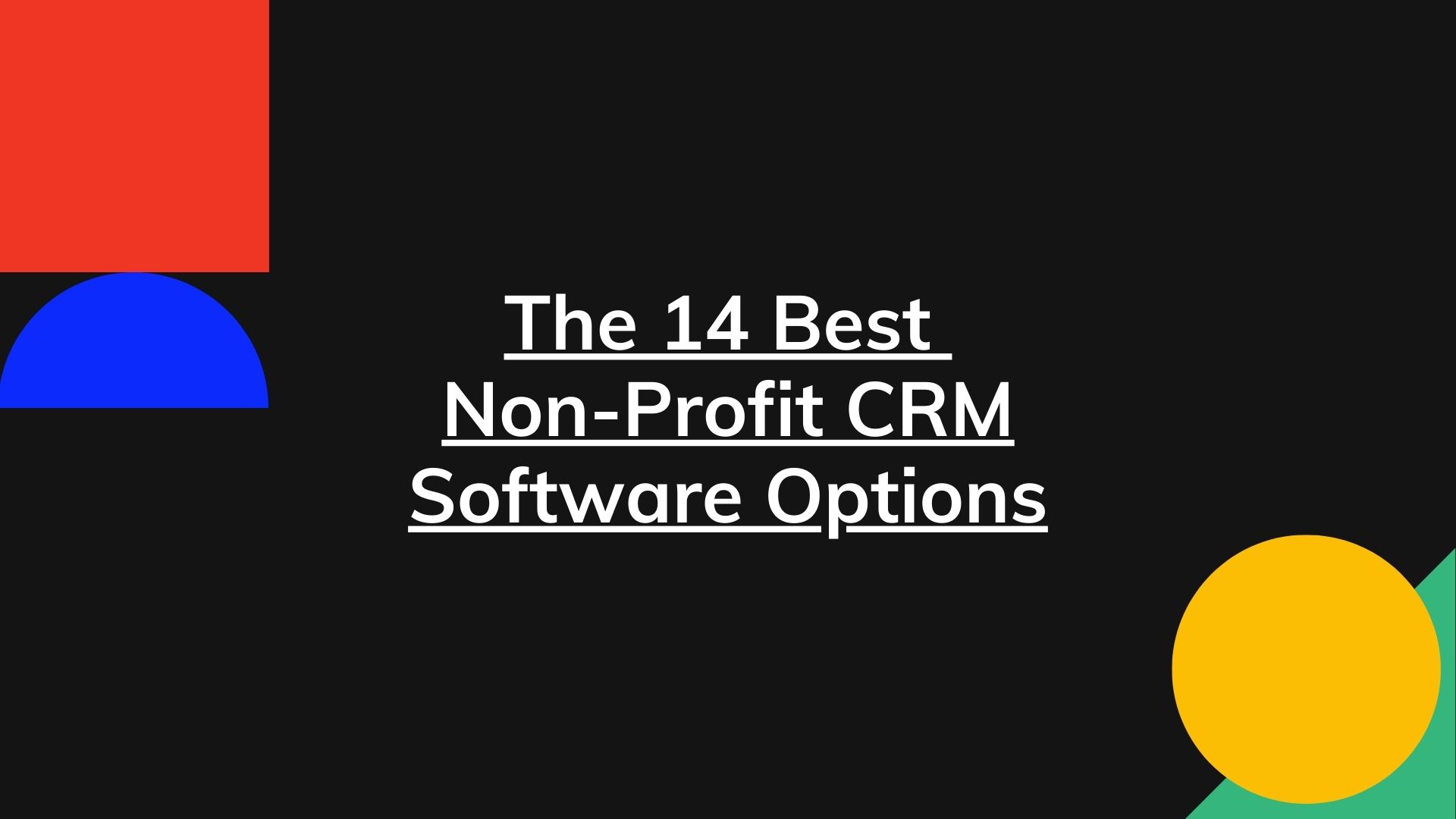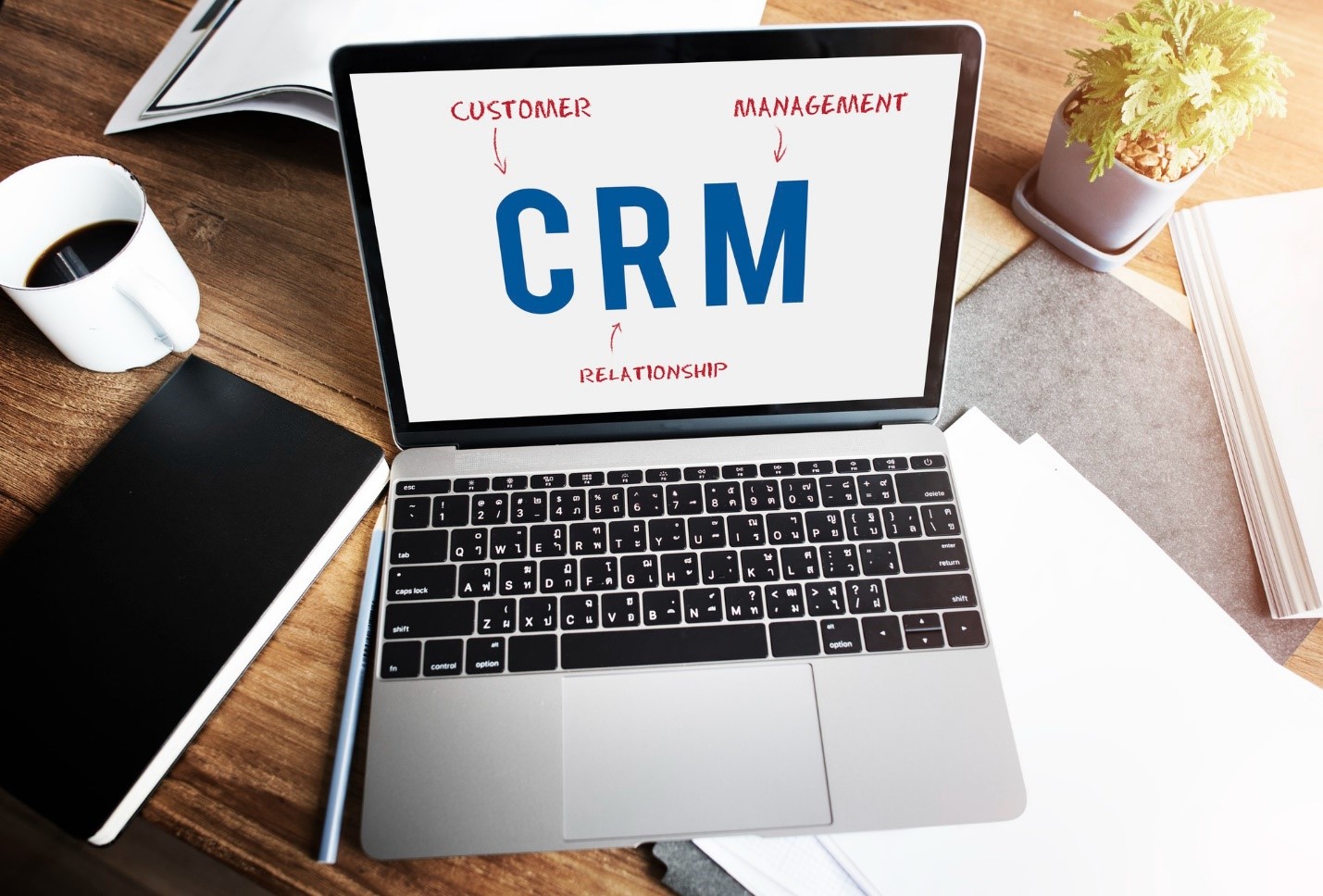Non profit crm software – Embark on a journey into the realm of non-profit CRM software, a powerful tool that empowers non-profit organizations to revolutionize their operations. Discover the myriad benefits, essential features, and best practices associated with this transformative technology.
Non-profit CRM software serves as a central hub for managing donor relationships, streamlining fundraising efforts, and enhancing communication with stakeholders. By harnessing its capabilities, non-profits can optimize their operations, maximize their impact, and drive positive change in the communities they serve.
Definition and Overview of Non-Profit CRM Software

Non-profit customer relationship management (CRM) software is a specialized tool designed to assist non-profit organizations in managing their interactions with donors, volunteers, and other stakeholders. It provides a centralized platform for tracking and managing relationships, automating tasks, and gaining insights into donor behavior.
Key Benefits of Non-Profit CRM Software
- Improved donor management:Track donor information, communication history, and donation history to build stronger relationships.
- Streamlined fundraising:Automate donation processing, manage campaigns, and track fundraising progress.
- Enhanced volunteer management:Recruit, track, and manage volunteers, including scheduling and communication.
- Increased efficiency:Automate tasks, reduce manual data entry, and improve overall operational efficiency.
- Improved reporting and analytics:Generate reports on donor behavior, fundraising performance, and volunteer engagement to make data-driven decisions.
Key Features and Functionalities of Non-Profit CRM Systems
- Donor management:Store and manage donor information, track communication history, and record donation history.
- Fundraising management:Plan and manage fundraising campaigns, track donations, and process online payments.
- Volunteer management:Recruit, track, and manage volunteers, including scheduling, communication, and training.
- Event management:Plan and manage events, track attendance, and send invitations and reminders.
- Reporting and analytics:Generate reports on donor behavior, fundraising performance, and volunteer engagement.
Examples of Popular Non-Profit CRM Software Solutions
- Salesforce Nonprofit Cloud
- DonorPerfect
- Neon CRM
- Bloomerang
- CiviCRM
Benefits of Using Non-Profit CRM Software: Non Profit Crm Software
Non-profit CRM software provides numerous advantages for organizations seeking to manage donor relationships, streamline fundraising efforts, and enhance communication and collaboration with stakeholders. These systems offer a centralized platform that facilitates efficient operations, empowering non-profits to maximize their impact and achieve their missions.
Donor Relationship Management
- Centralized Donor Database:CRM systems create a comprehensive database that stores all donor information, including contact details, donation history, communication preferences, and engagement metrics. This centralized repository enables non-profits to track and manage donor relationships effectively.
- Personalized Communication:CRM software allows non-profits to segment donors based on their demographics, interests, and giving patterns. This segmentation enables organizations to tailor communications, such as thank-you letters, event invitations, and fundraising appeals, to resonate with specific donor groups.
- Donor Engagement Tracking:CRM systems track donor interactions, such as website visits, email opens, and event attendance. This data provides valuable insights into donor engagement levels, allowing non-profits to identify opportunities for further cultivation and stewardship.
Fundraising Streamlining
- Campaign Management:CRM software helps non-profits plan, execute, and track fundraising campaigns. It provides tools for creating donation pages, managing online fundraising events, and automating communication with potential donors.
- Donor Cultivation:CRM systems facilitate donor cultivation by tracking donor giving history and identifying potential major donors. Non-profits can use this information to develop personalized cultivation strategies and build strong relationships with high-value donors.
- Grant Management:CRM software can manage grant applications, track grant progress, and generate reports for funders. This streamlines the grant management process and improves the chances of securing funding.
Improved Communication and Collaboration
- Centralized Communication:CRM systems provide a central hub for all donor communications, including emails, letters, and phone calls. This eliminates the need for multiple communication channels and ensures that all interactions with donors are documented and easily accessible.
- Collaboration with Stakeholders:CRM software facilitates collaboration between staff, volunteers, and board members. It provides shared access to donor information, campaign updates, and event details, enabling teams to work together seamlessly.
- Improved Reporting and Analytics:CRM systems generate comprehensive reports and analytics that provide insights into donor behavior, fundraising performance, and overall organizational effectiveness. This data helps non-profits make informed decisions and adjust their strategies accordingly.
Features to Consider When Choosing Non-Profit CRM Software
When selecting non-profit CRM software, it’s crucial to consider a comprehensive range of features to ensure alignment with your organization’s specific needs and goals. Key features to evaluate include:
Data Management:Robust data management capabilities are essential for effectively storing, organizing, and managing donor information, including contact details, donation history, and communication preferences. This data forms the foundation for personalized outreach, relationship building, and informed decision-making.
Donor Management
Donor management features are critical for cultivating and nurturing relationships with supporters. These features enable organizations to track donor interactions, record donations, manage communication campaigns, and segment donors based on their interests and giving patterns. Effective donor management fosters loyalty, increases engagement, and maximizes fundraising potential.
Reporting Capabilities
Comprehensive reporting capabilities provide valuable insights into fundraising performance, donor behavior, and campaign effectiveness. Non-profit CRM software should offer customizable reports that can be easily generated to track key metrics, identify trends, and make data-driven decisions. These reports help organizations optimize their fundraising strategies and demonstrate accountability to stakeholders.
Integration with Other Software and Tools
Integration with other software and tools enhances the functionality of non-profit CRM software. By seamlessly connecting with accounting systems, email marketing platforms, and social media tools, organizations can streamline operations, automate tasks, and improve communication efficiency. This integration enables a holistic approach to donor management and fundraising efforts.
Implementation and Best Practices for Non-Profit CRM Software
Successful implementation of non-profit CRM software requires careful planning and execution. Here are some best practices to consider:
Data migration is crucial for ensuring a smooth transition from your existing system to the new CRM. Plan thoroughly, involve relevant stakeholders, and ensure data accuracy and integrity.
Training
Provide comprehensive training to all users to ensure they understand the CRM’s functionality and can utilize it effectively. Train users on data entry, reporting, and other essential tasks.
Optimization
Continuously monitor and optimize CRM usage to maximize its benefits. Track key metrics, identify areas for improvement, and make necessary adjustments to enhance efficiency and effectiveness.
Case Studies and Success Stories of Non-Profit CRM Software

Non-profit organizations have leveraged CRM software to enhance their operations and achieve their missions more effectively. Here are some notable case studies and success stories that showcase the transformative impact of CRM systems in the non-profit sector.
The American Red Cross
The American Red Cross implemented a CRM system to streamline its volunteer management, fundraising efforts, and disaster response operations. The system enabled the organization to:
- Increase volunteer engagement by providing self-service tools for scheduling and tracking volunteer hours.
- Improve fundraising efficiency by automating donor management and providing personalized communication channels.
- Enhance disaster response capabilities by providing real-time data on volunteer availability and resource allocation.
Habitat for Humanity International
Habitat for Humanity International adopted a CRM system to improve its donor stewardship and project management processes. The system helped the organization:
- Cultivate stronger relationships with donors by tracking their engagement history and providing personalized communication.
- Optimize project management by centralizing data on construction sites, volunteers, and beneficiaries.
- Increase efficiency in fundraising campaigns by automating donor outreach and tracking campaign performance.
World Vision
World Vision implemented a CRM system to enhance its child sponsorship program and improve its global operations. The system enabled the organization to:
- Personalize child sponsorship relationships by providing sponsors with regular updates and communication.
- Improve communication and collaboration among field staff, donors, and beneficiaries.
- Track and measure the impact of its programs on the lives of children and communities.
Emerging Trends and Future of Non-Profit CRM Software
The landscape of non-profit CRM software is continuously evolving, driven by advancements in technology and the changing needs of organizations. Emerging trends are shaping the future of CRM systems, empowering non-profits to enhance their operations and impact.
Impact of Artificial Intelligence (AI) and Machine Learning (ML), Non profit crm software
AI and ML are transforming CRM systems by automating tasks, improving data analysis, and providing personalized experiences. Non-profits can leverage AI to streamline fundraising, automate donor management, and gain insights from data. ML algorithms can analyze donor behavior, identify trends, and predict future giving patterns, enabling organizations to optimize their fundraising strategies.
Role of Non-Profit CRM Software in Empowering Non-Profit Organizations
Non-profit CRM software plays a crucial role in empowering non-profit organizations by providing them with the tools and capabilities they need to achieve their missions. By leveraging technology, non-profits can improve their efficiency, enhance donor engagement, and make data-driven decisions.
CRM systems enable organizations to track donor interactions, manage volunteers, and measure the impact of their programs. This empowers them to optimize their operations, maximize resources, and demonstrate the value of their work to stakeholders.
Final Conclusion

As the future of non-profit CRM software unfolds, the integration of cutting-edge technologies like artificial intelligence and machine learning promises to further enhance its capabilities. By embracing these advancements, non-profit organizations can unlock unprecedented potential and continue to make a profound impact on the world.